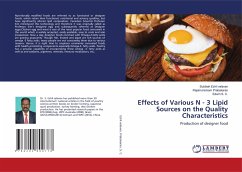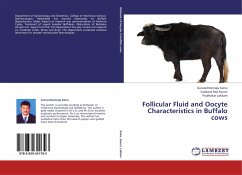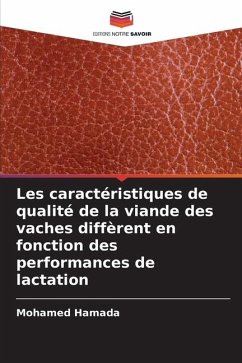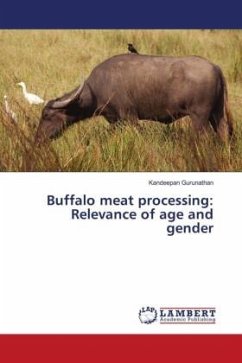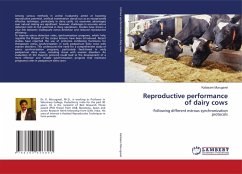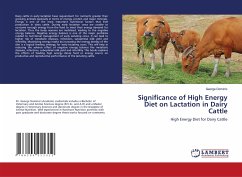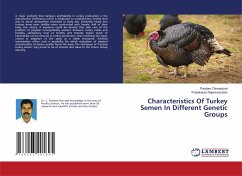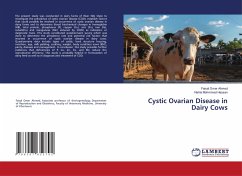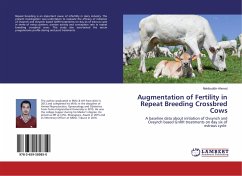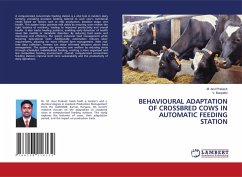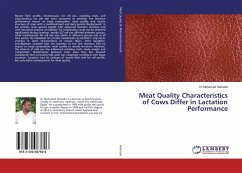
Meat Quality Characteristics of Cows Differ in Lactation Performance
Versandkostenfrei!
Versandfertig in 6-10 Tagen
43,99 €
inkl. MwSt.

PAYBACK Punkte
22 °P sammeln!
Muscle fiber profile, intramuscular fat cell size, marbling traits, and subcutaneous fat cell size were measured to estimate the lactation performance impact on body composition, meat quality, and muscle structure of cows with a combined beef and dairy genetic background. In live animals, cows gained weight with advanced lactation duration and with decreased amount of milk/day. Fat mobilization could not be detected significantly during lactation, except SCF cell size differed between groups, while intramuscular fat cell size was similar in different groups and at all time points. No indicatio...
Muscle fiber profile, intramuscular fat cell size, marbling traits, and subcutaneous fat cell size were measured to estimate the lactation performance impact on body composition, meat quality, and muscle structure of cows with a combined beef and dairy genetic background. In live animals, cows gained weight with advanced lactation duration and with decreased amount of milk/day. Fat mobilization could not be detected significantly during lactation, except SCF cell size differed between groups, while intramuscular fat cell size was similar in different groups and at all time points. No indication for protein mobilization by lactation, only minor changes in some characteristics of muscle fibers. After slaughter, investigations revealed that the duration of the first lactation had no impact on body composition, meat quality or muscle structure. However, the amount of milk per day influenced marbling traits, body weight and composition. Relationships between traits were low, but showed consistently that increasing milk yield was negatively correlated with tissue accretion. Lactation had no changes of muscle fiber and fat cell profile, but only minor consequences for meat quality.



